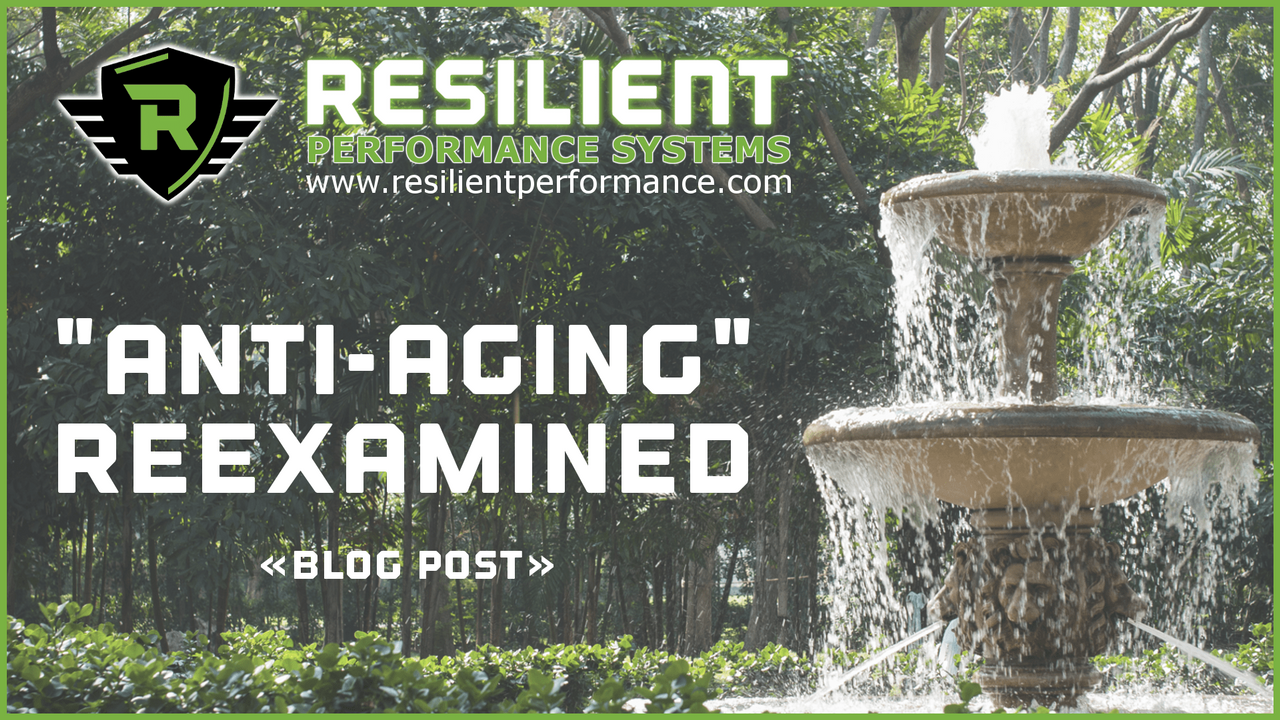
"Anti-Aging" Reexamined
Before “biohacking” was a thing, “anti-aging” was already alive and well in the medical community. Like organized religion, science is a vehicle for hope. Religion comforts us about the spiritual world, including what happens after we die, and science comforts us about the physical world by rendering everything seemingly knowable. Both domains ultimately provide hope and guidance in the face of uncertainty. Anti-aging medicine occurs at the intersection of science and religion where science seeks to prolong physical existence at the relative expense of the spiritual one.
The problem with hope is that it devalues the present by encouraging the imagination to prioritize the future. Both science and religion assure us that the future will be better than the present. The former promises continual “progress” and the latter an afterlife generally free of worry. Anti-aging medicine has yet to deliver on the potential that it advertises, however. So what are we do to in the meantime? “Anti-aging” itself is a misnomer. Aging is inescapable. Why do we assume that living eternally as a twenty five year old, as an example, is superior to aging as we do now? I’m not convinced that living to be two hundred years old is desirable either. In a world of finite resources, people have a difficult enough time cooperating and coexisting with a life expectancy less than half that age. Even in the abstract, prolonging life expectancy with no end in sight raises incredibly complex ethical questions. It’s just not as simple as more (life expectancy) is better. To suggest otherwise is incredibly naïve and dangerous.
Living over a hundred-years as a biological twenty five year old remains a theoretical fantasy despite the hype generated by some commentators. The fear of aging, at least in the United States, reflects a gross disconnect between medicine and culture. Many medical practices are developed in an ethical and cultural vacuum. When studying the effect of particular medical interventions in a lab, it is necessary to remove any contextual factors that could confound the results of the experiment. In other words, strategy is regarded as noise to isolate a tactical or more micro level objective. The goal of medicine is presumably to heal and minimize harm. Sometimes reframing context is a better means of achieving this end than focusing on slowing down genetic mutations associated with aging, as an example.
Most of the physiological changes that occur with aging have been pathologized. Pathology creates a market for interventions many of whose unintended side effects harm rather than heal. As suggested here, medicine is more effective when the intervention reduces the likelihood of a large tail risk. When non-clinically relevant degrees of arthritis, as an example, are pathologized, however, they perpetuate a belief that aging itself is pathological. “Arthritis” that doesn’t pose a significant clinical tail risk is a natural consequence of aging, not a medical diagnosis. Some degree of pain or discomfort is normal, perhaps even daily, regardless of one’s age. “Anti-aging” medicine is so appealing because aging is regarded mainly as a burden. Aging is normal and generally desirable, not something from which medicine needs to rescue us. Besides, hope is a not a good clinical strategy. Like “biohacking”, “anti-aging” is a marketing term, not a medical one. Aging is something to be embraced, not feared.
The way to age gracefully is to prioritize health, not just disease management, right now. It is not to wait for science to find a cure for a normal process. That knowledge is currently too scarce to make informed health decisions is a great fallacy of the information age. In many situations, the ability to apply what is already known limits outcomes more than lack of data. Behavioral modification is difficult. Medicine incentivizes interventionism and dependency (faith in providers and hope for scientific breakthroughs), not patient empowerment or collaboration with non-medical providers/systems that also influence health. Medicine is already pretty good at prolonging life. However, medicine has traditionally emphasized disease management, not health promotion. The real intent behind “anti-aging” is substantive longevity. Medical providers are not the arbiters of what is healthy. Health is as much a systemic and a cultural issue as it is a medical one. Medical providers alone don’t get to determine what aging should and shouldn’t look like.
Great song but not quite...
Freebies and exclusive promos!
We won't share your info. Unsubscribe at any time.

